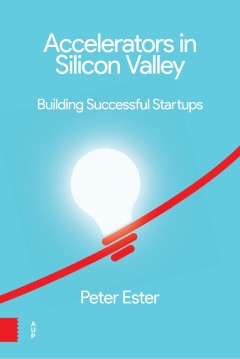Filter by
# Debug Box
/var/www/htdocs/pustaka-digital/lib/SearchEngine/SearchBiblioEngine.php:688 "Search Engine Debug 🔎 🪲"
Engine Type ⚙️: "SLiMS\SearchEngine\SearchBiblioEngine"
SQL ⚙️: array:2 [ "count" => "select count(sb.biblio_id) from search_biblio as sb where sb.opac_hide=0 and ((match (sb.topic) against (:subject in boolean mode)))" "query" => "select sb.biblio_id, sb.title, sb.author, sb.topic, sb.image, sb.isbn_issn, sb.publisher, sb.publish_place, sb.publish_year, sb.labels, sb.input_date, sb.edition, sb.collation, sb.series_title, sb.call_number from search_biblio as sb where sb.opac_hide=0 and ((match (sb.topic) against (:subject in boolean mode))) order by sb.last_update desc limit 10 offset 20" ]
Bind Value ⚒️: array:1 [ ":subject" => "'+\"Entrepreneurship\"'" ]

Digital Kenya : an entrepreneurial revolution in the making
Presenting rigorous and original research, this volume offers key insights into the historical, cultural, social, economic and political forces at play in the creation of world-class ICT innovations in Kenya. Following the arrival of fiber-optic cables in 2009, Digital Kenya examines why the initial entrepreneurial spirit and digital revolution has begun to falter despite support from motivated…
- Edition
- -
- ISBN/ISSN
- 9781137578785
- Collation
- XXXIII, 509 p.
- Series Title
- -
- Call Number
- 338.927096762 DIG d

Fulfilling the promise of technology transfer : fostering innovation for the …
Universities and research institutes are increasingly expected to contribute to society by creating innovation from the returns of their research results and the establishment of new technologies. Toward that goal, Keio University in Japan held an international symposium titled “Fulfilling the Promise of Technology Transfer: Fostering Innovation for the Benefit of Society.” From that sympos…
- Edition
- -
- ISBN/ISSN
- 9784431543060
- Collation
- viii, 128p. : ill.
- Series Title
- -
- Call Number
- 338.926 FUL f

Industry 4.0 for SMEs : challenges, opportunities and requirements
This open access book explores the concept of Industry 4.0, which presents a considerable challenge for the production and service sectors. While digitization initiatives are usually integrated into the central corporate strategy of larger companies, smaller firms often have problems putting Industry 4.0 paradigms into practice. Small and medium-sized enterprises (SMEs) possess neither the huma…
- Edition
- -
- ISBN/ISSN
- 9783030254254
- Collation
- xxxv, 412p. : ill.
- Series Title
- -
- Call Number
- 338.04 IND i

Transnational entrepreneurship in South East Asia : Japanese self-initiated e…
This open access book brings together narratives of inbound and outbound expatriate entrepreneurship in Japan to provide a comprehensive overview of international entrepreneurship in the region. Through in-depth interviews with expatriate entrepreneurs, policymakers, and additional stakeholders it provides the reader with a solid understanding of the current landscape of international entrepren…
- Edition
- -
- ISBN/ISSN
- 9789813292529
- Collation
- xxi, 220p. : ill.
- Series Title
- -
- Call Number
- 338.04 YOK t

Social innovation : comparative perspectives
Social Innovation: Comparative Perspectives investigates socio-economic impact. Since it is hard to establish causality and to measure social properties when investigating impact, especially at the level of society, the book narrows down impact to one priority aspect: social innovation – understood as organizations’ capacity to generate novel ideas, ways and means of doing things, of addres…
- Edition
- -
- ISBN/ISSN
- 9781315158020
- Collation
- xix, 297p. : ill.
- Series Title
- -
- Call Number
- 306.3094 SOC s

Accelerators in Silicon Valley: building successful startups : searching for …
In this book Silicon Valley expert Peter Ester describes how these 'schools of startup entrepreneurship' operate and how they empower startups. He interviewed over twenty Silicon Valley accelerators. They are analyzed in terms of mission, selection policy, technology focus, target groups, program features, funding, mentoring and training, and startup showcases. What can Europe and other regions…
- Edition
- -
- ISBN/ISSN
- 9789462987166
- Collation
- 175p. : ill.
- Series Title
- -
- Call Number
- 658.11 EST a

The entrepreneurial society : a reform strategy for Italy, Germany and the UK
This open access book is an outcome of the EU’s Horizon 2020 project ‘Financial and Institutional Reforms for an Entrepreneurial Society’ (FIRES). Building on historical, economic and legal analysis, and combining methods and data across disciplines, the authors provide policymakers, stakeholders and scholars with valuable new tools for assessing and improving Europe’s entrepreneurial e…
- Edition
- -
- ISBN/ISSN
- 9783662610077
- Collation
- xvi, 252p. : ill.
- Series Title
- -
- Call Number
- 306.34 ENT e

Entrepreneurship : a new perspective
The entrepreneur has been neglected over the years in formal economic theorizing. Previously there has been only eclectic theories such as human capital theory and network dynamics which discuss certain perspectives of entrepreneurial behaviour. This insightful book closes this gap in entrepreneurship literature. Inspired by modern physics, author Thomas Grebel brings together an evolutionary m…
- Edition
- -
- ISBN/ISSN
- 9780203478745
- Collation
- xx, 203p. : ill.
- Series Title
- -
- Call Number
- 338.04 GRE e
 Computer Science, Information & General Works
Computer Science, Information & General Works  Philosophy & Psychology
Philosophy & Psychology  Religion
Religion  Social Sciences
Social Sciences  Language
Language  Pure Science
Pure Science  Applied Sciences
Applied Sciences  Art & Recreation
Art & Recreation  Literature
Literature  History & Geography
History & Geography